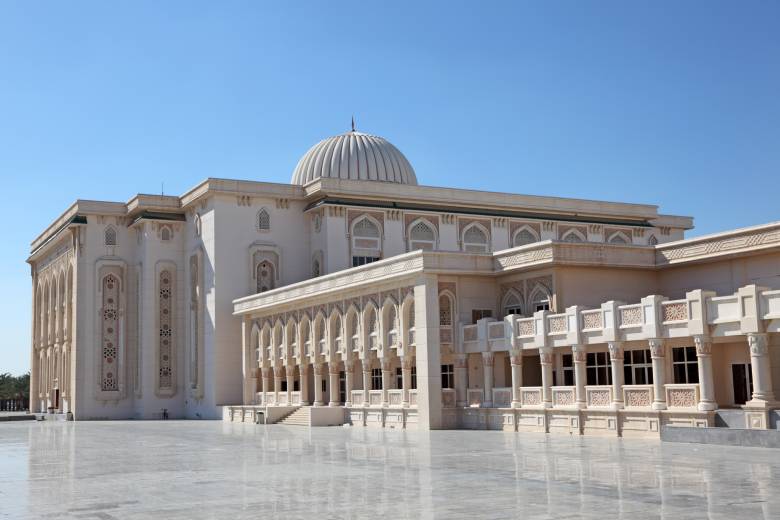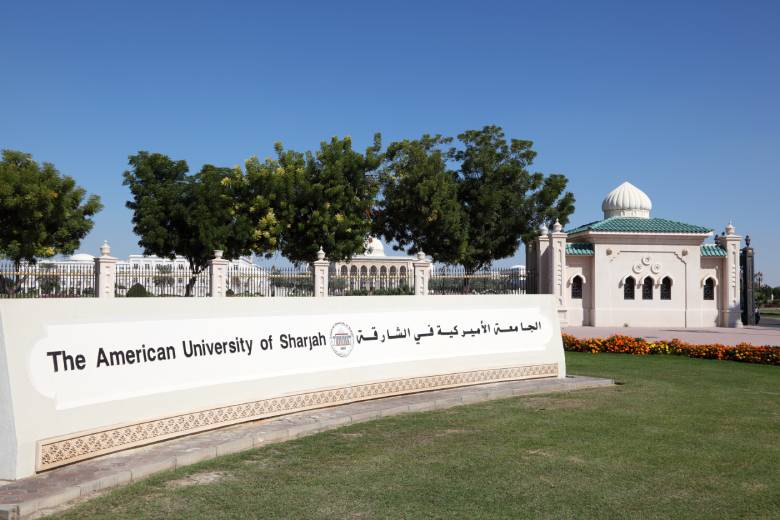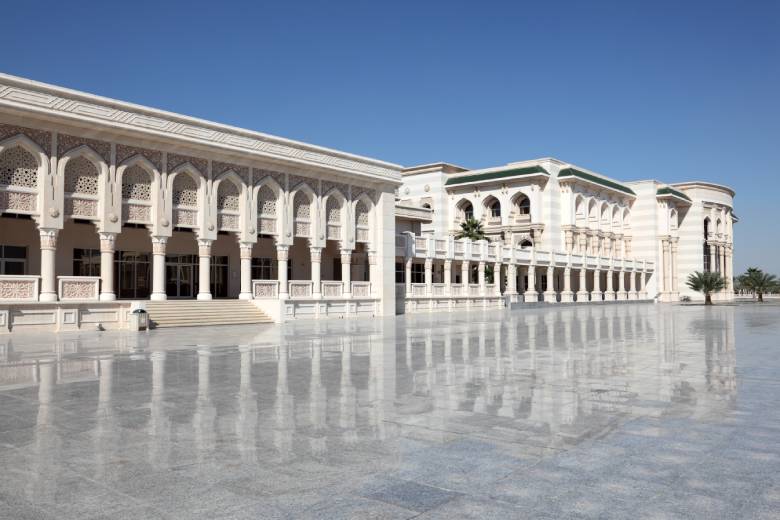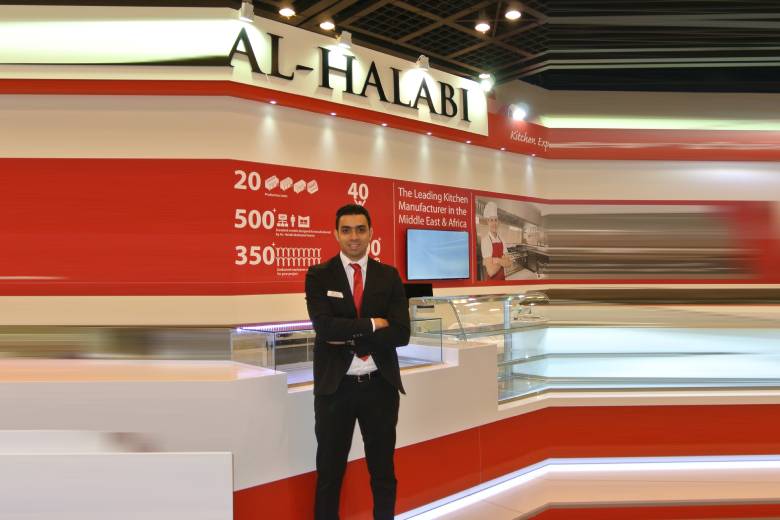One of the industry’s leading kitchen equipment manufacturers, Al Halabi Refrigeration & Kitchen Equipment is known for its innovation, quality, and commitment to excellence. With a storied history spanning several decades, Al Halabi continues to push the boundaries of kitchen technology, with every piece of equipment built to last with a focus on durability, performance, and energy efficiency. The third generation of the company, which was first established in the UAE in 1975, is led by Bilal Al Halabi, who believes that every challenge holds within it an opportunity for growth, a mindset he began to develop back in his university days at the American University of Sharjah.
EdUAE: Did you enjoy your time at university?
Bilal Al Halabi: Yes, I enjoyed it a lot, which was rather unexpected! It was back in 2000, and I think I was in the third or fourth batch of students; it was a relatively new university at the time. But I quickly discovered that there are two aspects to university life: the educational and the social. Back then in Dubai, there was no such thing as an international social life; we just had our school friends and childhood friends. So when I entered the American University of Sharjah, newly established with support from the American University of Beirut, it was a revelation. I met and made friends with interesting people from all over the world, mainly Saudi Arabia, Libya, Palestine, and Nigeria, so it was a multicultural education and atmosphere. Initially, I wanted to study overseas, but my family is very important to me, and I didn’t want to be away from them for three years. However, I still wanted to attend an international university that would value my talents and give me a scholarship. The American University of Sharjah turned out to be the perfect solution, and I was very, very happy there.
EdUAE: Have you retained some of the friendships you made? Are you still in contact?
BH: Yes, I was very social, and the campus gave me access to a lot of friendships. Many of these have developed into an extremely useful network. Many of my fellow students became highly successful, covering all sorts of fields, from being influencers to working in government. And yes, we still talk, we still connect, and we still network in a business sense.

I quickly discovered that there are two aspects to university life: the educational and the social
EdUAE: And not just locally within the UAE, but internationally?
BH: Yes, because many students, especially from Saudi Arabia, came to Sharjah because they did not have an American university at home and they didn’t want to go to a state university. So I made a lot of friends, and they have very good positions now, which is a benefit for me in my business.
EdUAE: What did you study at university, and did you have a favourite course or thesis?
BH: I studied finance because I was good at maths and analysing. I had a passion for it. Back in Dubai, the stock market was booming and the entire nation was really starting to take off, so it was an interesting time for me to enter this field. I particularly enjoyed the finance courses, especially international finance, because that is an area I’m really interested in.
EdUAE: So university prepared you well for your future career?
BH: It did, particularly because of the level and quality of the faculty. The professors were very special because the Sheikh, the ruler of Sharjah, invested a lot of money into the university because he wanted it to be exceptional and gain an excellent reputation. So, he invited leading professors from the United States, the United Kingdom, and many countries in the Arab world, and they were all scholars and very well-known. In their own fields, they were celebrities; most of them had written successful books about the finance world, and one had a bestselling book. This gave me access to knowledge and experience that were far beyond an ordinary education.
EdUAE: I guess that because of the quality and the international status of the university, it changed your perspective on the world.
BH: Of course, because when I graduated, I didn’t want to work on a country level. I wanted to work on a global level. I enjoyed learning about the macro-economy more than the microeconomy. I liked international business, law, and finance. So, my mind was going global, and this was my focus. This is what I was most interested in, and the majority of my high grades were on international courses.

EdUAE: It wasn’t all academic, though, was it?
BH: No, on another level, the university gave me access to my passion, football. I was amazed to find that the university football coach was also the assistant coach for the Iraq national team and had coached in the FIFA World Cup! This was a real chance for me to improve my game. We had a very strong football team, and we travelled all around the region playing games and tournaments; we went almost 45 matches unbeaten. I developed tremendously as a player, learning so much from the coaches as well as my fellow players, who came from Saudi Arabia, Libya, the United States, and other countries. It was like playing in the professional game for Barcelona!
If you can get a good mentor in the early stages of university, you will progress at ten times the speed
EdUAE: Your university education sounds very, very positive. But did you have any challenges you had to meet?
BH: I like to meet different people, study, and play football, so it was kind of the full package for me. However, there was one big challenge, and that was the vast difference between high school and university. Today things are different, but back then, school didn’t prepare you for university at all, so it was super hard when I first arrived on campus. It was very tough and challenging, but I learned a lot in terms of how to manage timeframes and deliverables. But it’s good that things have changed.
EdUAE: Do you have any advice for students starting university in the not too-distant future?
BH: I would tell them to focus on networking. Of course, studying is important, but if you look for the right friends who you can grow with in life – friends who are smart and disciplined growing minds – that is the basis for a great network, which will serve you well in your future career. I do business with a number of my old student colleagues. I have someone in Saudi Arabia who works quite high up in the government, and we share our networks and do some business together on the side. Also, there is someone who is now my partner in a second business I operate.

This is why it is important to network. I would advise those ready to go to university to try to have an entrepreneurial mind too; perhaps open an online business or have access to someone who has done this in life and ask him or her to be your mentor. If you can get a good mentor in the early stages of university, you will progress at ten times the speed. So I advise every student to get a mentor or take up a three-month (at least) course with an education coach. I would highly recommend that.
For me, university education was a stepping stone to future career success and a place where I made friends and built relationships with professors, peers, and professionals in my field. They were great days, and I am happy to say that I have reaped the benefits!









